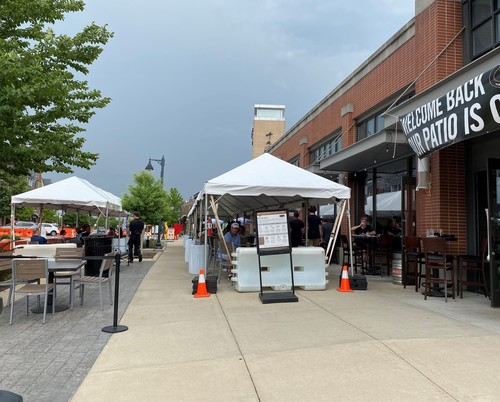We have been following for some time now the COVID-19 takings lawsuits that have been popping up since California’s first closure orders. As we previously reported, these cases did not seem to be making much traction in the courts. However, one ongoing case in the United States District Court for the Southern District of California may be trending in the opposite direction.
In the case of Bols v. Newsom (2021 U.S. Dist. LEXIS 15237), Plaintiffs’ businesses (commercial landlord, hair and nail salons) were deemed non-essential per the public health orders and experienced the ...
The Refugio Oil Spill in 2015 resulted in not only impacts to a highly diverse stretch of California’s coast, but also years of associated litigation. In a recent California Court of Appeal opinion, State Lands Commission v. Plains Pipeline, L.P., No. B295632 (Nov. 19, 2020), the court held that the judicial doctrine establishing that public utilities do not owe the public a duty to provide their services continuously and without interruption did not apply to Plains Pipeline, L.P. and its affiliates (collectively, “Plains Pipeline”) on the ground that despite being a public ...
Typically, when a public agency acquires property by eminent domain, it names all potentially interested parties in the condemnation action. This includes the property owner, any easement holders, lien holders and usually businesses as well. If the agency does not name all interested parties, anyone with an interest may still appear in the action. Or if the party does not appear, it could potentially file a subsequent inverse condemnation action for the taking of its property interest (which could expose the agency to attorneys’ fees -- hence the importance of naming all ...
Sometimes a public agency ends up abandoning an eminent domain proceeding, even after the property owner or business has moved from the property. Under Code of Civil Procedure, section 1268.620, if a defendant “moves from property” and the agency subsequently dismisses the suit, the owner/business may be able to recover payment of all damages proximately caused by the proceeding and its dismissal. One would think determining whether an owner/occupant has “moved” from the property would not be an issue for dispute. But a recent unpublished California Court of Appeal ...
While there is a healthy debate over just how much the sea level will rise over the next 50 years, there is at least a general consensus that the sea level will rise. What this means for those on the coast depends on the jurisdiction. Some jurisdictions will attempt to armor the coast, protecting the structures that exist for as long as they can. Others will pursue a policy of managed retreat, allowing the ocean to creep inward unabated. In California, the Coastal Commission has expressed a preference for managed retreat. However, because of the negative connotations associated with that ...
When the government requires a property owner to give up private property, the takings clause normally comes into play and the government is required to exercise its power of eminent domain. But is that always the case? According to a recent court of appeal opinion, People v. Gonzalez (Nov. 24, 2020, D077208), there are a number of circumstances in which the government can require a property owner to sell without triggering a taking of private property.
In Gonzalez, a property owner was charged with using his property without a permit or variance and maintaining an unauthorized ...
On December 3, Brad Kuhn and Maya Hamouie will co-present “Business Valuation and Damages: Assessing COVID-19’s Economic Impact” at the virtual lunch hosted by Chapter 1 of the International Right of Way Association (IRWA) for its members.
Brad and Maya will review the impacts of COVID-19 on the economy, discuss business valuation methodologies and how to take COVID-19 into consideration, then review how these scenarios are playing out in litigation. Following the presentation, they will have an interactive Q&A session with members of the audience.
Chapter 1 of IRWA seeks ...
The U.S. Supreme Court recently agreed to decide whether a California regulation allowing union organizers to access employers’ property is an unconstitutional taking under the Fifth Amendment.
In the lower court’s decision, Cedar Point Nursery v. Sheroma, a two-judge majority of the Ninth Circuit Court of Appeals rejected a claim by a group of employers that the regulation created uncompensated easements on their property. The California Agricultural Labor Relations Board regulation permits union organizers to use an employer’s property for up to three hours per day ...
When a public agency seeks to acquire property by eminent domain, the agency’s appraiser sometimes forgets to account for unique value attributes of the property. For example, the valuation may fail to take into account income the property generates from a billboard or a cell tower. According to an article on KCRA News, 'I think they are a bunch of thieves': Auburn couple decries Caltrans' eminent domain move, this situation is currently playing out in Northern California. …
As the world continues to grapple with the devastating impacts from COVID-19, local government agencies are finding ways to help local businesses survive while still complying with the complex maze of regulatory requirements. As just one example, many cities and counties are permitting restaurants and other businesses to offer outdoor dining and other services, including granting permits to operate on the public sidewalk or in streets. However, in some cases, while those outdoor operations may benefit some businesses, other businesses are complaining about the resulting ...
Eminent Domain Report is a one-stop resource for everything new and noteworthy in eminent domain. We cover all aspects of eminent domain, including condemnation, inverse condemnation and regulatory takings. We also keep track of current cases, project announcements, budget issues, legislative reform efforts and report on all major eminent domain conferences and seminars in the United States.
Stay Connected
 RSS Feed
RSS Feed
Categories
- Administration
- Appraisal
- California
- CLIMATE CHANGE
- CONGRESS
- Construction
- Court Decisions
- EPA
- Events
- Goodwill
- GOVERNMENT ADMINISTRATION
- Inverse Condemnation & Regulatory Takings
- Lawsuit
- New Legislation
- Possession
- Projects
- Public Agency Law
- Publications
- Redevelopment
- Regulatory Reform and Proposed Rules
- Right to Take
- Right-of-Way
- Seminars
- Speaking Engagements and Presentations
- trial
- Valuation
- Videos
- Water










